VIRTUAL SYMPOSIUM
EEG: ANALYTICAL APPROACHES AND APPLICATIONS
Sep 1-2, 2021
This symposium brings together researchers working on various analytical approaches to EEG, as well as signal processing at different levels of resolution (e.g. LFP and ECOG), and their application to a number of different neurologic, psychiatric and cognitive outcomes. The focus will be on sharing of new tools and algorithms and advances in their application.
Session Topics
- New Analytical Methods in EEG
New ways to analyze the EEG signal, particularly showcasing ideas from other fields such as LFP analysis as well as speech and image processing. - EEG Tools and Resources
Presentations of new code libraries, pipelines, data repositories and other resources for EEG. - Advances in EEG Hardware
Presentations of new products and advances in hardware and sensor technologies. - Applications of EEG in Cognition
New analytical advances in EEG for use in diagnosis and monitoring of cognitive processes and disorders.
Session Format
Each session will be approximately 2 hours in duration and will include invited talks followed by a moderated panel discussion.
In addition, the sessions on New Analytical Methods in EEG and Applications of EEG in Cognition will include up to three Rapid Talks of 3 mins relevant to the session topic and selected from student and postdoc submissions.
Apply to Give a Rapid Talk
Rapid Talks are 3 mins in duration followed by up to 2 mins of Q&A. These are a virtual alternative to the typical poster session. Talks should be relevant to the topic and can cover either published or unpublished work. Submissions will be considered based on relevance to the session topic, innovation and clarity.
Eligibility: Current student or postdoc at any university worldwide.
Submissions due: June 15, 2021.
Decision Notification: July 1, 2021.
Apply here
Funding for this conference was made possible in part by grant R13EB032253 from NIBIB. The views expressed in written conference materials or publications and by speakers and moderators do not necessarily reflect the official policies of the NIH; nor does mention by trade names, commercial practices, or organizations imply endorsement by the U.S. Government.
Please note that this is a partial list of speakers. We are continuing to confirm speakers, so please check back for updates.
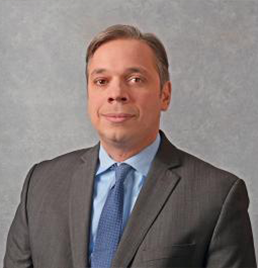
Dr. Michael Milham
Vice President of Research, Director, Center for the Developing Brain; Child Mind Institute
Dr. Milham, is the founding director of the Center for the Developing Brain at the Child Mind Institute. His research interests include investigating how functional and structural connectivity in the brain may underlie differing forms of mental illness, and seeking to chart the course of brain development in healthy and affected children. He has significantly advanced a Big Data research agenda in the neuroimaging community including the Healthy Brain Network – an initiative aiming to create a large-scale (10,000 participants) resource for the scientific community to study child and adolescent mental health including EEG and other modalities of data.
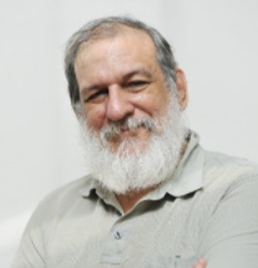
Dr. Pedro Valdes Sosa
Director, Joint China Cuba Lab, Frontiers Research in Translational Neurotechnology
Professor Valdes-Sosa is Co-PI of the Global Brain Consortium, Director of the Joint China-Cuba Laboratory at the University of Science and Technology of China, co-founder of the Cuban Neuroscience Center in 1990, Senior Professor of Medicine in Havana, Member Emeritus of the Cuban Academy of Sciences, and Fellow of the OHBM. Pioneering software for the first Cuban microcomputer (1970), he co-authored the Neurometrics paper (Science 1977), developed MEG/EEG Tomography, and its introduction into the Cuban health system. He has published large open normative datasets in neuroimaging including a platform for EEG-ECoG comparisons and the Cuban Human Brain Mapping Project.
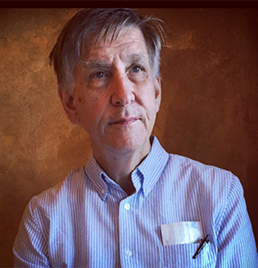
Dr. Scott Makeig
Research Scientist & Director, Swartz Center for Computational Neuroscience (SCCN), Institute for Neural Computation (INC), UCSD
Dr. Makeig is a pioneer in the analysis and modeling of human cognitive event-related dynamics captured by high-dimensional EEG, MEG and ECoG. He has developed numerous analytical approaches and is the co-originator of the widely used EEGLAB signal processing environment for MATLAB. Combining EEG with eye tracking and body motion capture he has also pioneered the field of mobile brain/body imaging (MoBI).

Dr. Christoph Guger
Founder and CEO, g.tec neurotechology
Dr. Christoph Guger is co-founder of g.tec medical engineering in Austria, which has been developing high-performance brain-computer interfaces and neurotechnologies for invasive and non-invasive recordings since 1999. Dr. Guger oversees the global distribution and utilization of g.tec’s products in clinical environments for research purposes such as brain assessments of severe brain injuries and disorders of consciousness, motor rehabilitation after stroke, neuromarketing, deep brain stimulation, brain mapping, neuroprosthesis control, communication, painting and closed-loop invasive and non-invasive BCI experiments.
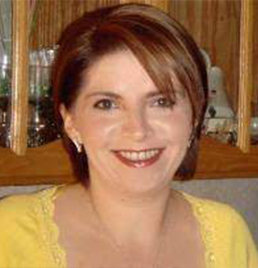
Dr. Avgusta Shestyuk
Global Head of Science and Research, Neuroscience, NielsenIQ
Dr. Shestyuk is the Head of Science and Research for BASES-Neuro, NielsenIQ. She joined the Nielsen Company in 2011 after completing her Ph.D in Psychology at Harvard University and post-doctoral training in Cognitive Neuroscience at the University of California, Berkeley. Dr. Shestyuk has received numerous research and teaching awards from Harvard University and was awarded a post-doctoral fellowship from the National Institute of Mental Health to conduct her research at UC Berkeley. In her academic work, Dr. Shestyuk has used EEG, skin conductance, heart rate, fMRI, and intracranial brain recordings to examine how the brain processes salient (i.e., task-relevant, emotional, or stressful) information. This research has resulted in a number of high-profile publications.

Dr. Arno Klein
MATTER Lab Director, Child Mind Institute
Arno Klein is the Director of the MATTER Lab at the Child Mind Institute, which builds sensor-based wearable devices and software tools for mobile, remote data collection and mental health interventions. He is a passionate proponent of open science and has developed numerous technologies, including the Mindboggle open source software for automated brain feature extraction, labeling, and shape analysis, and the MindLogger platform for creating, sharing, and administering mobile and web applications for mental health assessments, cognitive tasks, and therapies.
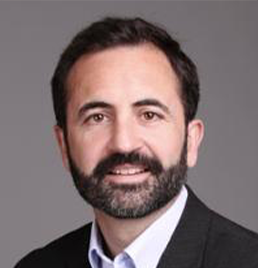
Dr. Edmund Lalor
Associate Professor, Departments of Biomedical Engineering and Neuroscience at the University of Rochester
Dr. Ed Lalor heads the Computational Cognitive Neurophysiology Lab at the University of Rochester. Research in his lab explores quantitative modelling approaches to the analysis of sensory electrophysiology in humans focused on examination of the neural processing of natural stimuli such as speech, music and video. In addition, he is interested in how the brain integrates visual and auditory information when processing natural speech and sensory processing in patients with schizophrenia and in children with developmental disorder.
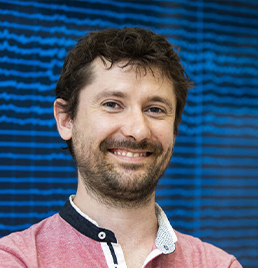
Dr. Guillaume Dumas
Assistant Professor in Computational Psychiatry of the Faculty of Medicine, University of Montreal
Dr. Guillaume Dumas is the IVADO Assistant Professor in Computational Psychiatry of the Faculty of Medicine at the University of Montreal and the Director of the Precision Psychiatry and Social Physiology laboratory in the CHU Sainte-Justine research center. His research explores inter-brain synchronization and social cognition. He is also one of the seven FRQS J1 researchers in Artificial Intelligence and Digital Health, affiliated to the Mila – Quebec Artificial Intelligence Institute and an affiliate member of the Human Brain and Behavior Laboratory, in the Center for Complex Systems and Brains Sciences of Florida Atlantic University.
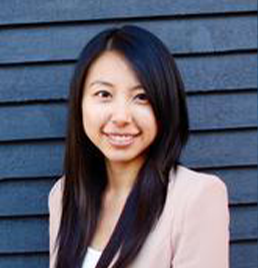
Dr. Julia Kam
Assistant Professor, University of Calgary
Dr. Julia Kam is Assistant Professor in the Dept. of Psychology and full member of the Hotchkiss Brain Institute at the University of Calgary. She studies the neurophysiological basis of internal attention commonly known as mind wandering, using both scalp EEG and intracranial EEG. Her work has revealed EEG markers of different types of mind wandering, which she hopes will ultimately drive the development of tools that optimize attentional control with applications in real-world contexts and clinical populations.
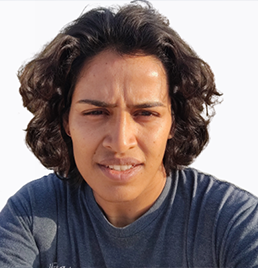
Dr. Dhanya Parameshwaran
Senior Scientist, Sapien Labs
Dhanya’s combined interest in solving socioeconomic challenges and understanding the brain led to the pioneering work behind the Human Brain Diversity Project where she continues to build deep insights into the EEG signal and its relationship to environment and human outcomes.Dhanya has worked across various neural systems and species from rats to humans studying electrical activity of the brain from spiking activity in CA1 pyramidal neuronal networks to LFP, ECoGand EEG signals. She has a broad computational background with substantial experience in signal processing and machine learning.
September 1, 2021
| Applications of EEG | ||
| 12:00pm – 12:20pm EDT |
Current and Future Applications of BCIs Dr. Christoph Guger, Founder and CEO, g.tec neurotechology |
|
| 12:20pm – 12:40pm EDT |
MindLogger: a platform to create, share, administer, and use data collection applications on phones and in web browsers Dr. Arno Klein, MATTER Lab Director, Child Mind Institute |
|
| 12:40pm – 1:00pm EDT |
Using EEG to quantify consumer behavior Dr. Avgusta Shestyuk, Global Head of Science and Research, Neuroscience, NielsenIQ |
|
| 1:00pm – 1:05pm EDT |
Rapid Talk Emotional cities: unraveling (describing) emotions across the urban environment with EEG Diego Andrés Blanco Mora, Junior Researcher / Postdoctoral Fellow, Universidade de Lisboa |
|
| 1:15pm – 1:45pm EDT |
Panel Discussion: The Future of Applications of EEG Moderated by Dr. Tara Thiagarajan |
|
| Moving Towards Big Data and Standards in EEG | ||
| 8:00pm – 8:20pm EDT |
Opportunities and Limitations of Publicly Available Big Data for Biomarker Discovery in the Developing Brain Dr. Mike Milham, Vice President of Research, Phyllis Green and Randolph Cōwen Scholar; Director, Center for the Developing Brain; Director, Healthy Brain Network; Senior Pediatric Psychopharmacologist |
|
| 8:20pm – 8:40pm EDT |
Multinational Norms for High Resolution Quantitative Eletroencephalography (qEEG) Dr. Pedro Valdes Sosa, Director, Joint China Cuba Lab, Frontiers Research in Translational Neurotechnology |
|
| 8:40pm – 9:00pm EDT |
Exactly what happened when!? Recording the nature of events in time series data Dr. Scott Makeig, Research Scientist & Director, Swartz Center for Computational Neuroscience (SCCN), Institute for Neural Computation (INC) |
|
| 9:00pm – 9:45pm EDT |
Panel Discussion: The Changing Landscape of Research: Big Data Challenges and Implications Moderated by Dr. Tara Thiagarajan |
September 2, 2021
| Session replay: Moving Towards Big Data and Standards in EEG Please note that this will be a replay of the session from the previous evening for our attendees in different time zones |
||
| 8:00am – 8:20am EDT |
Opportunities and Limitations of Publicly Available Big Data for Biomarker Discovery in the Developing Brain Dr. Mike Milham, Vice President of Research, Phyllis Green and Randolph Cōwen Scholar; Director, Center for the Developing Brain; Director, Healthy Brain Network; Senior Pediatric Psychopharmacologist |
|
| 8:20am – 8:40am EDT |
Multinational Norms for High Resolution Quantitative Eletroencephalography (qEEG) Dr. Pedro Valdes Sosa, Director, Joint China Cuba Lab, Frontiers Research in Translational Neurotechnology |
|
| 8:40am – 9:00am EDT |
Exactly what happened when!? Recording the nature of events in time series data Dr. Scott Makeig, Research Scientist & Director, Swartz Center for Computational Neuroscience (SCCN), Institute for Neural Computation (INC) |
|
| 9:00am – 9:45am EDT |
Panel Discussion: The Changing Landscape of Research: Big Data Challenges and Implications Moderated by Dr. Tara Thiagarajan |
|
| EEG and Cognition – Part 1 | ||
| 10:00am – 10:20am EDT |
Signatures of cognition in adults and children in resting state EEG Dr. Dhanya Parameshwaran, Senior Scientist, Sapien Labs |
|
| 10:20am – 10:40am EDT |
Encoding and decoding models of EEG responses to continuous, natural stimuli Dr. Ed Lalor, Principal Investigator, Lalor Lab for Computational Cognitive Neurophysiology |
|
| 10:40am – 11:00am EDT |
Rapid Talks:
|
|
| EEG and Cognition – Part 2 | ||
| 12:00pm – 12:20pm EDT |
Hyperscanning-EEG and Inter-Brain Synchronization during Social Interaction: from Neurobehavioral Correlation to Causal Explanation Dr. Guillaume Dumas, Assistant Professor in Computational Psychiatry of the Faculty of Medicine, University of Montreal |
|
| 12:20pm – 12:40pm EDT |
EEG markers of mind wandering Dr. Julia Kam, Assistant Professor, University of Calgary |
|
| 12:40pm – 12:50pm EDT |
Rapid Talks:
|
|
| 12:50pm – 1:30pm EDT |
Panel Discussion: Understanding Cognition in the EEG: Challenges and New Frontiers Moderated by Dr. Tara Thiagarajan |
Rapid Talks are 3 mins in duration followed by up to 2 mins of Q&A. These are a virtual alternative to the typical poster session. Talks should be relevant to the topic and can cover either published or unpublished work. Submissions will be considered based on relevance to the session topic, innovation and clarity.
Eligibility: Current student or postdoc at any university worldwide.
Submissions due: July 15, 2021.
Decision Notification: Aug 10, 2021.
